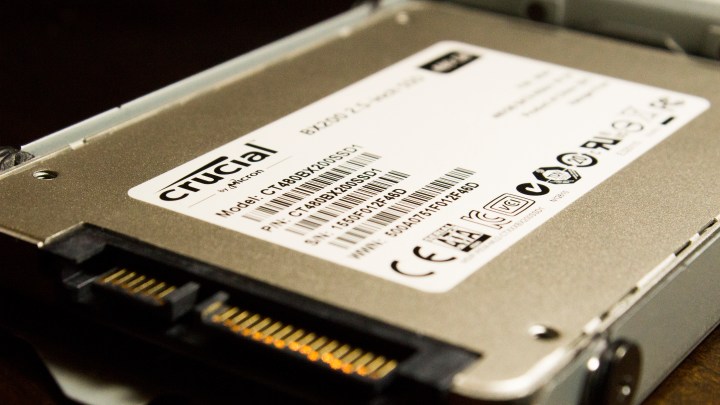
Another area where SSDs differ from HDDs is how best to make sure that all of your data has been removed when you pass them along to someone else or throw them away. That’s an important question today when so much of our private information is stored both locally and in the cloud, and cloud storage and backup solutions company Backblaze has some advice.
Backblaze starts out with a discussion of what not to do. First on the list is don’t bother with degaussing an SSD; while putting a strong magnetic field in close proximity to an HDD will wipe out its data, the same isn’t true for SSDs. While HDDs store information magnetically, SSDs do not, and so that method is useless.
Next, while using a drill or hammer to damage parts of an HDD will usually be enough to make the data unrecoverable, SSDs are different. They store their data in chips and not platters, and so destroying just part of an SSD isn’t sufficient. Finally, you can’t simply erase or reformat the free space on an SSD to make sure all of the data is gone as you can on an HDD.
And so what does work, according to Backblaze? The easiest method is to encrypt an SSD, which of course only applies if the SSD is still working and plugged in. If it is, then rather than erasing the data, encryption simply makes it incredibly difficult to recover — especially if you then reformat the SSD before sending it off to wherever it’s headed.
Another method is to shred the SSD. That’s an expensive proposition, however, as shredders capable to ripping an SSD apart have prices running into the thousands of dollars. And, if you decide to go this route, then you’ll want to make sure it’s capable of breaking the SSD remnants into half-inch widths or smaller to ensure that information can’t be recovered.
Ultimately, if you can find another use for your SSD and keep it in your possession, then that’s always a logical choice. Contacting the manufacturer is another good step to take — they sometimes have utilities that might be helpful. But in the end, particularly if the SSD is built into a machine and can’t easily be removed, then encrypting the drive before formatting it seems to be the simplest and most straightforward option.
Editors' Recommendations
- Major tax services are sending your data to Meta and Google
- Freaked out by the FBI’s smart TV warning? Here’s what you should do
- Disney+ has a Dolby Atmos problem. Here’s what you need to know


